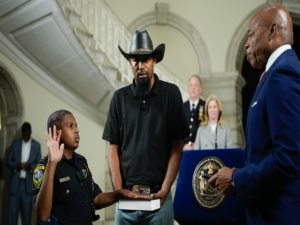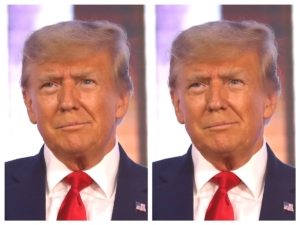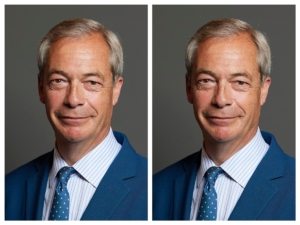U.S. President Donald Trump has again claimed credit for ending the conflict in eastern Congo, boasting that his intervention stopped what he called “a vicious war.” But on the ground, residents, activists, and analysts paint a very different picture, one of ongoing violence, displacement, and dashed hopes for peace.
Speaking Monday, Trump described Congo as the “darkest, deepest” corner of Africa and insisted he had brought stability. “For 35 years, it was a vicious war. Nine million people were killed with machetes. I stopped it. … I got it stopped and saved lots of lives,” he said.
Trump often points to a June deal between Congo and Rwanda as proof of success. Yet fighting continues in several provinces, particularly where Rwanda-backed M23 rebels clash with community militias aligned with Congolese forces. Residents and researchers stress that the situation remains unstable, contradicting Trump’s narrative.
However, a fact-check by the Associated Press indicated that the war is far from resolved. Qatar’s attempt to mediate a final peace agreement has stalled, with both sides accusing the other of breaking terms.
Watch a recent episode of The BreakDown podcast below and subscribe to our channel PanaGenius TV for latest episodes.
In South Kivu province, human rights inspector Ciruza Mushenzi Dieudonné said families are still being uprooted by battles in Bugobe, Cirunga, Kagami, and Bushwira.
“The problem now is that we do not have humanitarian assistance, hospitals operate during the day and health professionals find refuge elsewhere at night to escape the insecurity,” Dieudonné noted.
Christian Rumu of Amnesty International echoed that assessment. “It is far from the reality to say that he has ended the war,” he said of Trump.
“The U.S. president is misguided in his assessment because people on the ground continue to experience grave human rights violations, and some of these amount to crimes against humanity,” Rumu added, urging Trump to accelerate the peace process.
In Goma, the city first seized by M23 and still a flashpoint, student Amani Safari dismissed the deal as ineffective.
“Unfortunately, when you look at this agreement, there are no binding sanctions against the two countries that violate it,” Safari said. “The United States only sees American interests.”
Activist Espoir Muhinuka said there is little optimism left. “There is no sign the war will end soon,” Muhinuka said. “If this does not happen, it would deceive all of humanity.”
Civil society leaders are also losing confidence. John Banyene, who heads North Kivu’s civil society group, warned that hope is slipping away.
“The killings, the displacement of the population and the clashes continue, therefore, we are still in disarray,” Banyene said. “We, as civil society, encourage this dialogue, but it drags on.”
Political analyst Christian Moleka argued that Trump’s efforts may have briefly calmed tensions but did not resolve the deeper causes of the conflict.
“For a conflict that combines the complexities of the structural weaknesses of the Congolese state, local identity and land conflicts, and the fallout of crises in neighboring countries … Trump’s approach may appear as a truce rather than a definitive settlement,” Moleka said.
READ ALSO: 55 million foreign visa holders subject to Trump administration violation review
Despite Trump’s boasts, the violence in eastern Congo continues to claim lives and uproot communities, leaving many unconvinced that peace is anywhere near.










